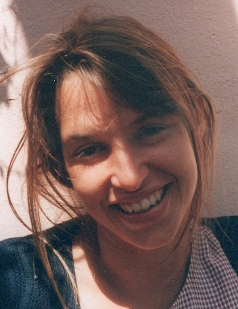
The Dominique Jacquin-Berdal Travel Grant was established by the International Relations Department at the LSE in memory of Dr Dominique Jacquin-Berdal who was a lecturer in the Department from 1999 until her death in 2006. She taught on nationalism and Africa as well as in the field of international relations theory. Her most well-known publication is Nationalism and Ethnicity in the Horn of Africa published in 2002. Her colleague James Mayall wrote an obituary in The Guardian, plus a longer piece in the IR Department journal Millennium.
The annual grant of £2,500 is intended to support travel and living costs for IR Department students’ research in the fields of Africa, ethnicity and nationalism. The 2016 grant holder is Evelyn Pauls and she gives her reactions, plus details of her project, below.
Evelyn Pauls

“I am most grateful and honoured to receive the Dominique Jacquin-Berdal Travel Grant for my work on international activism and child recruitment in Sierra Leone and Myanmar. Dr Jacquin-Berdal is an inspiration both in her academic work and as a former Millennium Editor and I can only hope that my research can continue in the tradition set by her and contribute to our understanding of how ‘the international’ impacts local contexts and vice-versa.”.
Thesis Title: International Activism and Child Soldiers: The advocacy network against child recruitment in Sierra Leone and Myanmar
Evelyn’s thesis investigates the influence of international activism on states’ child recruitment practices. In order to understand how international norms affect different actors in different contexts, she first traces the emergence of the child soldier framework and the international advocacy campaigns around it before conducting a comparative study of two different contexts, Sierra Leone and Myanmar. Sierra Leone is one of the most influential cases of child soldier use for the development of the contemporary advocacy network against child recruitment and a model for possible strategies and interventions for cases to follow, such as Myanmar. Analysing this case, which has been the subject of study for countless policy papers and many academic publications, with a focus on its relationship with the international advocacy network will shed light on the many unique features of this particular conflict, which makes its development into the ‘standard case’ for international advocacy on child soldier use problematic.



